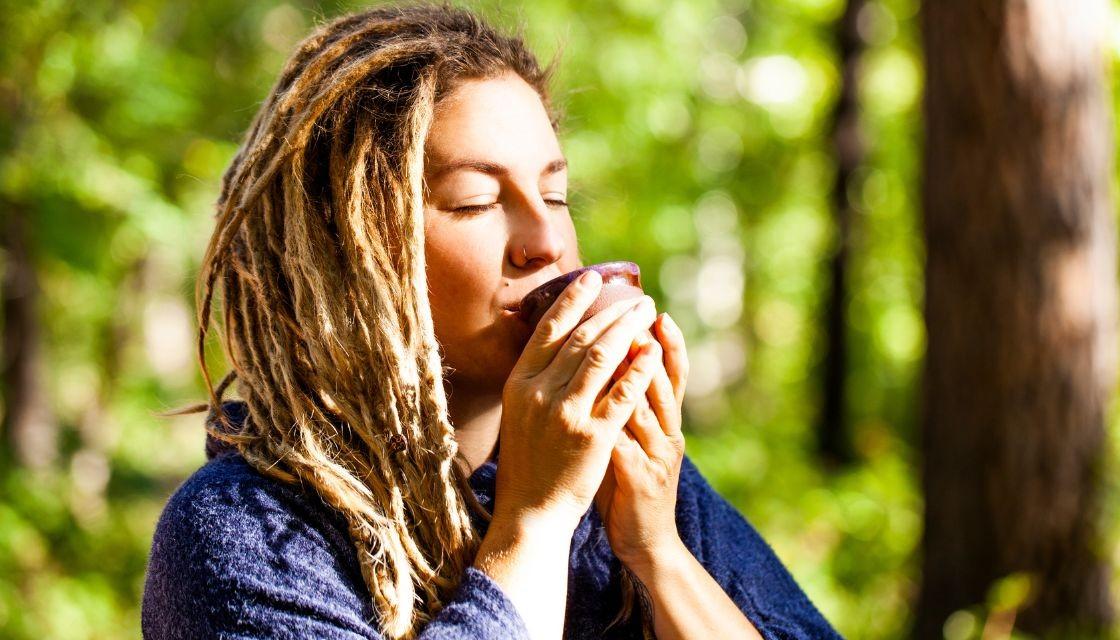A new study has shed light on the adverse physical and psychological side effects associated with ayahuasca, a South American psychoactive brewed drink traditionally used for social, medicinal and ceremonial purposes.
If the name sounds familiar, you may have been regaled with a tale or two of people travelling to exotic destinations to experience the psychoactive brew. Typically, these anecdotes tend to focus on the immediate effects that take place during an ayahuasca-induced 'trip', with many advocates hailing the experience as "enlightening".
Its contemporary use has also been expanding throughout the world for 'mental health' purposes and for spiritual and personal growth. Although clinical trials and observational studies have examined the potential advantages associated with consuming ayahuasca - with some scientists reporting several long-term health benefits - few had analysed its adverse effects.
However, new research - published this week in PLOS Global Public Health - has found the traditional medicine causes negative physical symptoms in more than two thirds of its consumers, and acute mental health issues in over half.
In the study, Australian researchers from institutions such as Western Sydney University and University of Melbourne, as well as their international counterparts, found 70 percent of consumers experienced acute, adverse physical symptoms while 55 percent reported damaging side effects with their mental health.
When it came to the adverse physical effects, almost 70 percent of those surveyed would vomit or feel nauseous after consuming the tea. Additionally, 17.8 percent reported headaches and 12.8 percent had abdominal pain, but only 2.3 percent reported requiring medical attention.
Of those surveyed, 28.5 percent reported hearing or seeing things that weren't there, 21 percent felt disconnected or alone, and 19.2 percent had nightmares or disturbing thoughts.
However, 87.6 percent of the respondents who identified these adverse psychological effects believed the symptoms were completely or somewhat part of a positive growth process.

The researchers used data from an online Global Ayahuasca Survey carried out between 2017 and 2019, involving 10,836 people from more than 50 countries who were at least 18 years old and had used ayahuasca at least once. Information on participants’ age, physical and mental health and history and context of ayahuasca use was collected.
The researchers also identified several factors that predispose people to the adverse physical side effects, which include older age, having a physical health condition or substance use disorder, a lifetime of ayahuasca use and taking ayahuasca in a non-supervised context.
"There is a high rate of adverse physical effects and challenging psychological effects from using the plant-based psychoactive ayahuasca, though they are generally not severe," lead author Daniel Perkins of University of Melbourne and his colleagues wrote in their report.

The authors noted that according to the standards used for assessing prescription medicines, ayahuasca has notable, although rarely severe, adverse effects. The authors concluded that ayahuasca practices can "hardly be assessed within the same parameters" used for prescription medicines, since the "myriad of its effects include challenging experiences that are intrinsic to the experience, some of which are considered as part of its healing process".
"Many are turning to ayahuasca due to disenchantment with conventional Western mental health treatments, however the disruptive power of this traditional medicine should not be underestimated, commonly resulting in mental health or emotional challenges during assimilation," the authors said.
"While these are usually transitory and seen as part of a beneficial growth process, risks are greater for vulnerable individuals or when used in unsupportive contexts."
The full results of the study have been published in the open-access journal PLOS Global Public Health.



